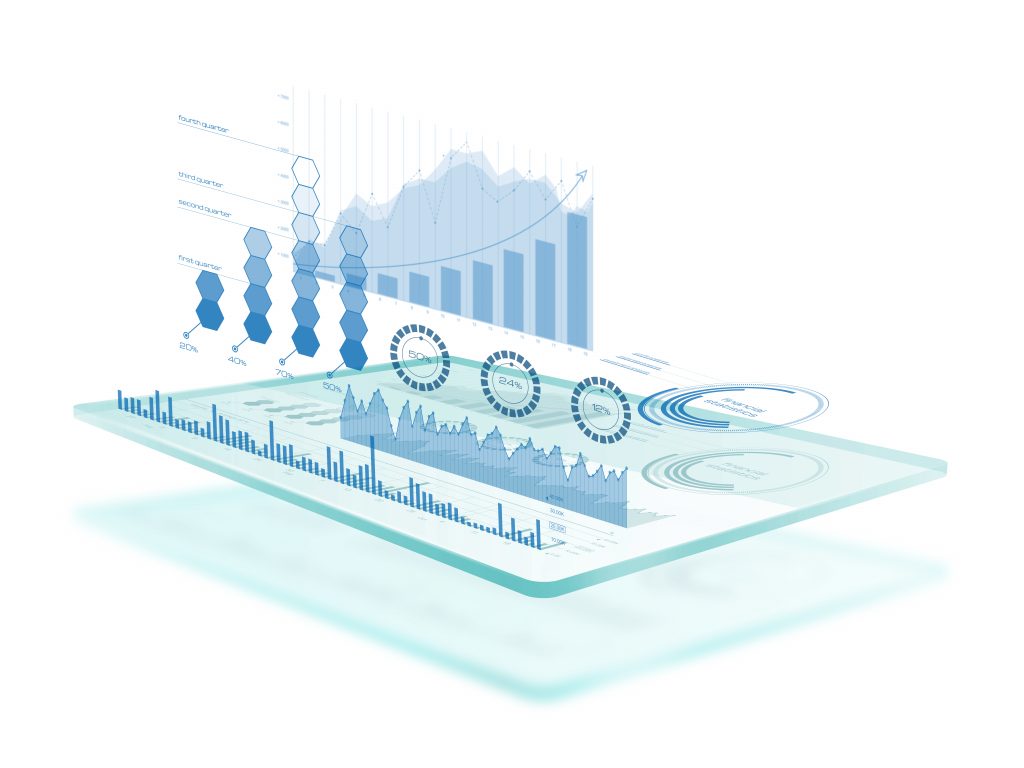Key takeaways
What are key metrics and why are they important?
Key metrics refer to analytical data that is collected and indicates how well an organization’s operations are running. Actions performed by teams as they pertain to the successful execution of pre-defined strategies and the completion of company goals can help pave the way for meaningful business performance, data analysis, and strategic planning.
Key metrics are important because they accurately measure the performance or effectiveness of a particular process, activity, project, or the workings of an organization’s online activities. These metrics are selected because they are deemed critical for assessing progress toward specific objectives or desired outcomes.
Looking for a data analysis solution to bolster your business intelligence efforts? Check out our Data Analysis Software Guide.
How do key metrics relate to business intelligence (BI)?
Key metrics are foundational elements within the realm of business intelligence (BI). They serve as the raw data points that fuel the analytical engines of BI systems, enabling organizations to derive meaningful insights, make informed decisions, and drive strategic initiatives.
In the vast landscape of data collection and analysis, key metrics represent the vital signs of a business, encompassing various aspects such as financial performance, operational efficiency, customer behavior, and market trends. From revenue growth and profitability to customer acquisition cost and churn rate, these metrics provide tangible indicators of a company’s health and performance.
EXPERT TIP
Through the lens of BI, key metrics serve as the bedrock upon which organizations build their understanding of internal processes, external market dynamics, and competitive landscapes. By meticulously tracking and analyzing these metrics over time, businesses can uncover trends, patterns, and correlations that inform strategic decision-making and drive actionable insights.
Key metrics are not just data points; they are the lifeblood of BI, driving continuous improvement, innovation, and strategic agility. By leveraging the power of data-driven insights, organizations can unlock new opportunities, mitigate risks, and work towards more sustainable growth.
Read more: What is Data Analytics?
What are some examples of key metrics?
Key metrics serve as vital indicators of organizational performance across diverse business functions and industries. Here are examples of some industries and how they work with metrics to boost sustainability and achieve successful outcomes.
Finance: Revenue, profit margin, and return on investment (ROI) are crucial metrics that gauge financial health and profitability in the finance sector.
Sales: Sales and marketing teams can track metrics like customer acquisition cost, conversion rate, and sales growth to assess effectiveness and drive revenue generation.
Manufacturing: Operational metrics such as inventory turnover, production efficiency, and on-time delivery measure operational effectiveness and efficiency.
Customer service: Customer service metrics show average response time and customer retention rates to reflect customer satisfaction and loyalty.
Human resources: In human resources, metrics such as employee turnover rate, satisfaction, and productivity provide insights into workforce dynamics and organizational culture.
These examples of key metrics at play highlight the ability of organizations to monitor performance, identify areas for improvement, and make informed decisions to drive sustainability over time.
Read more: Data Analysis Methods & Techniques
How should a business identify which metrics are essential for its success?
Identifying and selecting which key metrics are essential for an organization’s success usually depends on the company’s industry, business model, strategic priorities, and performance objectives. These metrics should be specific, measurable, and relevant to a business’s unique vision. These distinctions can then enable organizations to use these metrics to track progress and make data-driven decisions to achieve success.
How do key metrics influence business strategies and decision-making?
Key metrics influence business strategies by providing valuable insights into various aspects of a business’s performance, including financial health, operational efficiency, and customer satisfaction. By analyzing these metrics, decision-makers can identify trends, patterns, and areas of improvement, which ultimately inform strategic decisions and resource allocation.
Key metrics also aid decision-making by providing valuable insights, setting objectives and goals, identifying strengths and weaknesses, and monitoring market trends and competitor performance. By leveraging these metrics effectively, businesses can make informed actions and adapt to changing market dynamics.
Read more: What is Diagnostic Analytics?
What is the difference between key metrics and key performance indicators (KPIs)?
Key metrics and key performance indicators (KPIs) serve distinct purposes in evaluating business performance.
Key metrics encompass a broad range of measures that assess various aspects of a business’s operations, including financial, operational, marketing, and customer service metrics. They provide a comprehensive view of a business’s health but may not always directly align with its strategic objectives.
On the other hand, KPIs are a subset of key metrics specifically chosen to reflect progress toward achieving strategic goals and objectives. They are carefully selected based on their direct relevance to critical success factors and are used to monitor performance and drive decision-making.
Unlike key metrics, KPIs are more focused and precise and are often linked to specific targets or thresholds that indicate whether an organization is on track to achieve its strategic objectives.





